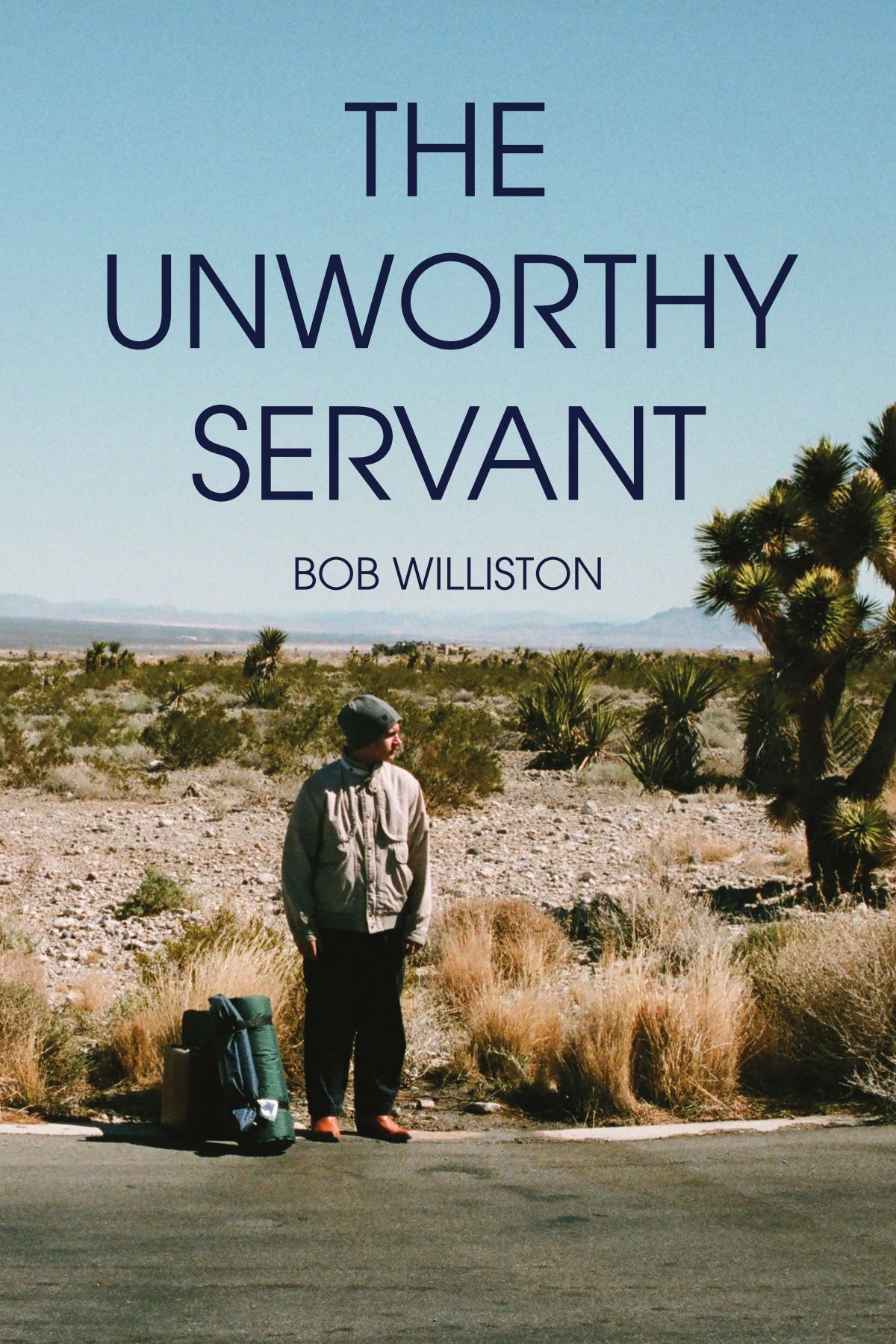Book review: The Unworthy Servant
by Bob Williston
★★★★
The Unworthy Servant is a fictional narrative of a young man who joins an obscure Christian “cultic” group. Bob Williston was raised in such a sect (sometimes called the 2x2s or the “Friends and Workers,” hereafter abbreviated F&Ws), and anyone who knows the author knows precisely the religious group which forms the inspiration for his writings, but this isn’t meant to be a story about only the F&W’s. Bob purposefully introduces idiomsand rituals that don’t derive from the F&Ws. For example, he writes about foot washing, which the F&W’s don’t practice; he speaks of “confessing” (the common F&W term is “professing”) and of attending “retreats” (F&W’s will call them “conventions.”) When I asked about this, Bob explained: “The reason I used some different language and some different practices was to make the book focus more on the dynamics and personalities in a cultic group, rather than have it appear to be simply a presentation of life among the 2x2s.”
But don’t be fooled: while Bob writes “generically” of such sects, his storyline and characters derive from an actual living, breathing religious movement. The F&W religion originated in the late 19th century, and maintains a worldwide nondenominational Christian fellowship of a few hundred thousand members that meet in homes and are directed by a homeless, travelling ministry. The group prefers to keep a low profile, and doesn’t have a legal organization or website to tell about it, but here is a website maintained by a prior member that can provide more information: http://www.tellingthetruth.info/home/
F&Ws will, of course, bristle at Bob’s use of the word “cult” as he describes the book, because this word can be misinterpreted in some very derogatory ways. I don’t want to put you in mind of another Heaven’s Gate or Waco, Texas. The F&W religion is benign by comparison, in my opinion only slightly more “cultish” than mainstream Christianity. Its members are satisfied, happy members of society. Nevertheless, Bob’s story will carry you deep inside a world that is very foreign to most Christians.
Meet Aaron Finkelstein, a young man who finds his spiritual emptiness met by a Christian group called “The Way.” Enamored of its simplicity and friendliness, he offers to become a “servant” (a minister, or, in F&W terms, a “worker”). As instructed, he signs over his life savings to the group so that he can become homeless and penniless. Thus begins a journey into a world of critical fundamentalism, aggressive exclusivity, under-the-surface legalism, subtle extortion and irrational over-admiration for group leaders. (Note to members of such groups: Yes, whether you feel it’s deserved or not, many outsiders and former members really do see your group in exactly these terms. The lack of financial accountability does not help.)
Ninety percent of the book is dialogue, which can be a challenge for an author. At times this style makes the book appear unimaginative and preachy (you can only do so much with “he said, she said”) but at other times makes it insightful and hard to put down. For me, perhaps because of my religious background, it was a page-turner. I particularly recommend it for anyone with connections to similar religious groups.












 354 Circles
354 Circles
 603 Goodreads Friends & Fans
603 Goodreads Friends & Fans

 Hello! I'm an author, historical Jesus scholar, book reviewer, and liberal Christian, which means I appreciate and attempt to exercise the humanitarian teachings of Jesus without getting hung up on any particular supernatural or religious beliefs.
The Bible is a magnificent book that has inspired and spiritually fed generations for thousands of years, and each new century seems to bring a deeper understanding of life’s purpose. This is true of not only Christianity; through the years, our age-old religions are slowly transforming from superstitious rituals into humanitarian philosophies. In short, we are growing up, and I am thrilled to be riding the wave.
I avidly read all thought-provoking religion titles. New authors: I'd love to read and review your book!
Hello! I'm an author, historical Jesus scholar, book reviewer, and liberal Christian, which means I appreciate and attempt to exercise the humanitarian teachings of Jesus without getting hung up on any particular supernatural or religious beliefs.
The Bible is a magnificent book that has inspired and spiritually fed generations for thousands of years, and each new century seems to bring a deeper understanding of life’s purpose. This is true of not only Christianity; through the years, our age-old religions are slowly transforming from superstitious rituals into humanitarian philosophies. In short, we are growing up, and I am thrilled to be riding the wave.
I avidly read all thought-provoking religion titles. New authors: I'd love to read and review your book!
 Hi! While Lee writes the articles and reviews the books, I edit, organize, and maintain the blog. The views expressed here are Lee's but I'm his biggest supporter! :-)
Hi! While Lee writes the articles and reviews the books, I edit, organize, and maintain the blog. The views expressed here are Lee's but I'm his biggest supporter! :-)
Connect With Me!